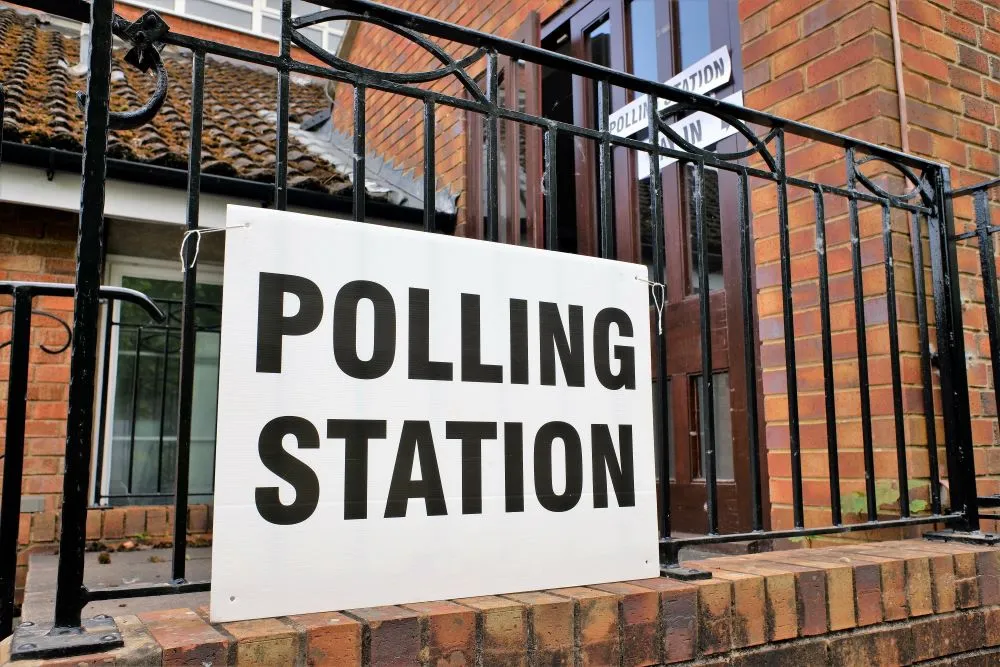Everything you need to know about voting

With local elections on the horizon, and a General Election due before 28th January 2025 against a backdrop of inflation disruption, UK residents are gearing up to cast their vote. But before we all head to the polls, there’s a few key steps you need to take.
Here are some handy reminders about the deadlines for registering to vote, and what you need to bring with you so you can exercise your democratic rights!
When is the next UK election?
The next UK polling day will be the local elections held on Thursday 2nd May. These are to vote for:
Police and Crime Commissioner elections in England and Wales
local government elections in England
parish council elections in England
local authority mayoral elections
combined authority mayoral elections
Mayor of London and London Assembly elections
What do I need to vote in the UK?
Before you head to the ballot box, you must make sure you’re registered. Otherwise, you will be turned away at the polling both, as you won’t receive what you need to cast a postal vote.
The deadline to register to vote in the upcoming local elections is 11:59pm on 16th April 2024. If you want to cast a postal vote, you must apply by 5pm on 17th April 2024.
Before you vote, check where your polling station is. It may not be the closest one to where you live and could have changed since the last time you voted. You must go to your allocated polling station, not one of your choice, even if it’s closer to your home or workplace. Your polling station will be listed on your poll car or you can check here.
In England, there is a recent change to the voting process that could catch you out. Since May 2023, voters in England must show a form of photo ID for certain elections. This includes:
UK parliamentary elections, including general elections, by-elections and recall petitions
Local elections and by-elections
Police and Crime Commissioner elections
This means that for the upcoming general election, voters in England must bring photo ID with them to vote. The new requirement does not apply to Scottish Parliament, the Welsh Senedd, or council elections taking place in Scotland and Wales.
What counts as photo ID for an election?
As voters in England now need to bring a form of photographic identification, there are many different forms of ID that will be accepted. These include:
Passport issued by the UK, any of the Channel Islands, the Isle of Man, a British Overseas Territory, an EEA state, or a Commonwealth country
A photo driving licence issued by the UK, any of the Channel Islands, the Isle of Man, or an EEA state (including a provisional driving licence)
A Blue Badge
Older Person’s Bus Pass
Disabled Person’s Bus Pass
Freedom Pass
Identity card bearing the Proof of Age Standards Scheme hologram (a PASS card)
Biometric immigration document
Ministry of Defence Form 90 (Defence Identity Card)
National identity card issued by an EEA state
Anonymous Elector’s Document
You can check your form of photo ID here.
Note: A bank card does not count, as you must use photo ID.
Interestingly, you can still use your photo ID even if it’s out of date, so long as it looks like you. The name of your ID should be the same name you registered to vote with.
If you don’t have an accepted form of photo ID such as ones listed above, you can apply for a free voter ID document. This is also known as a Voter Authority Certificate. You can also apply for one of these if you’re unsure whether your current photo ID looks like you, or you’re worried about using an existing form of ID for any other reason.
A Voter Authority Certificate cannot be used as an ID for any other purposes other than voting in an election. The deadline to apply for a free voter ID for the elections on Thursday 2nd May is 5pm on Wednesday 24th April.
When is the next UK general election?
The next general election must be held by 28th January 2025. This is because the latest a Parliament can be dissolved for a general election is on the fifth anniversary of the day it met – for the current one it’s the 17th December 2024. Then, 25 working days are allowed to prepare for the election.
In short, we don’t know at this current time, as the Prime Minister has not announced a date. However, there are some parameters and deadlines that can help give an indication.
In January, PM Rishi Sunak said that his “working assumption” was that there would be a general election in the second half of the year. But until the announcement comes, we’re all sitting tight!







